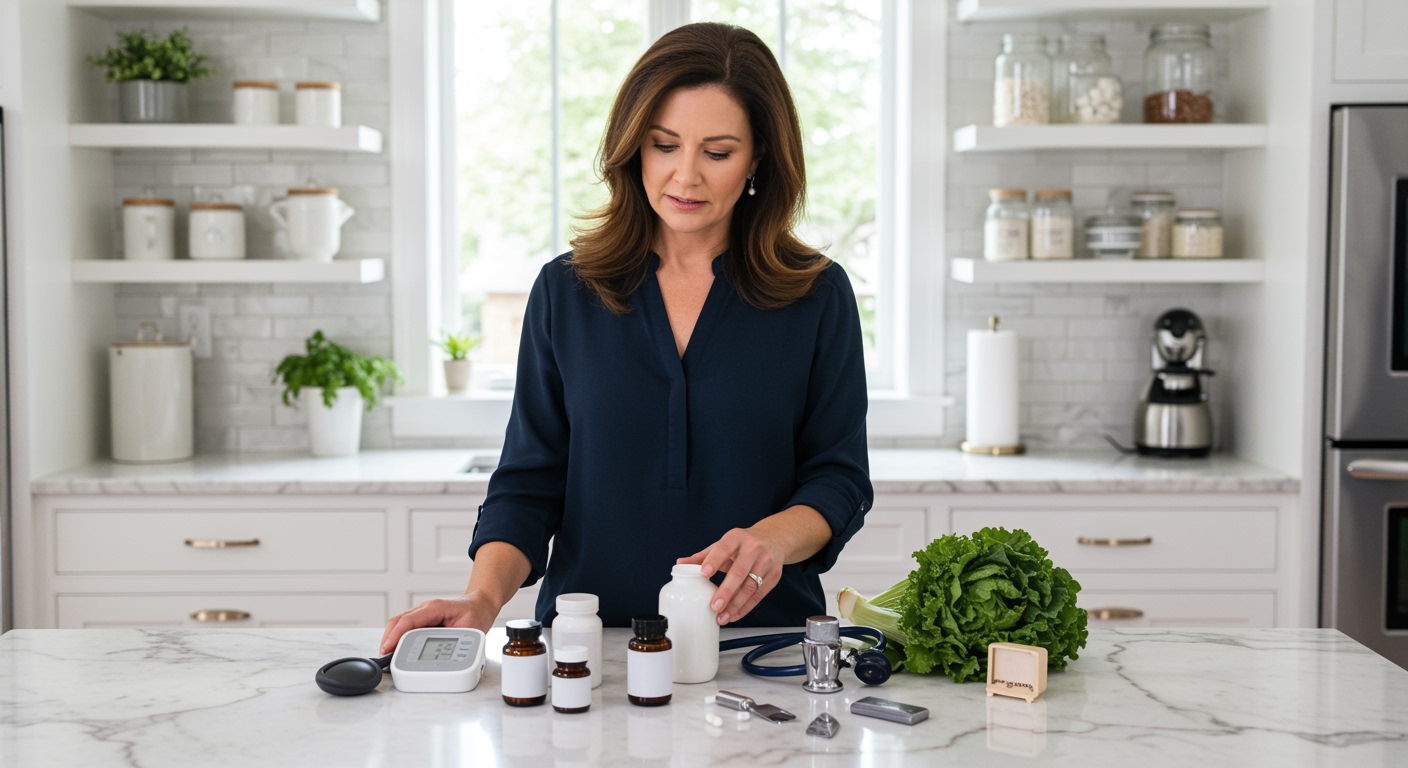✪ Key Takeaway: No, low blood pressure patients should not take nickel supplements as there is no scientific evidence supporting its use for hypotension.
Introduction
You walk into a health store and someone suggests nickel supplements for your low blood pressure.
This recommendation might sound logical because nickel is a trace mineral, but you are probably wondering if this advice makes any medical sense.
Hi, I am Abdur, your nutrition coach and today I am going to explain why nickel supplements are not the answer for low blood pressure and what actually works instead.
What Is Nickel and How Does It Affect Your Body?
Nickel is a trace mineral that exists naturally in many foods and the environment.
Your body contains about 10 milligrams of nickel, mostly stored in your bones, kidneys, and liver.
Most people get enough nickel from their regular diet through foods like chocolate, nuts, beans, and whole grains.
However, nickel deficiency is extremely rare in humans because we need such tiny amounts.
The main concern with nickel is actually toxicity rather than deficiency.
When you consume too much nickel, it can cause skin reactions, respiratory problems, and digestive issues.
Your cardiovascular system does not rely on nickel supplementation to maintain proper blood pressure levels.
✪ Fact: The average person consumes 150-700 micrograms of nickel daily through food, which exceeds our biological needs.
Does Scientific Research Support Nickel for Low Blood Pressure?
No credible scientific studies demonstrate that nickel supplements can treat or improve low blood pressure.
Medical literature shows that nickel plays no significant role in blood pressure regulation mechanisms.
Your blood pressure depends on factors like blood volume, heart rate, blood vessel elasticity, and hormonal balance.
Minerals that actually affect blood pressure include sodium, potassium, magnesium, and calcium.
These minerals work through established pathways like the renin-angiotensin system and sodium-potassium pumps in your cells.
Nickel does not participate in any of these cardiovascular processes.
Taking nickel supplements for low blood pressure is like using a screwdriver to fix a leaky faucet – completely wrong tool for the job.
✪ Pro Tip: Always ask for peer-reviewed research when someone recommends supplements for medical conditions.
What Are the Real Risks of Taking Nickel Supplements?
Taking unnecessary nickel supplements can actually harm your health instead of helping it.
Nickel is one of the most common causes of allergic contact dermatitis, affecting about 15% of the population.
When you take nickel supplements, you increase your risk of developing skin rashes, itching, and inflammation.
Your digestive system can also react poorly to excess nickel with symptoms like nausea, vomiting, and stomach pain.
High nickel intake may interfere with the absorption of other important minerals like iron and zinc.
Some studies suggest that excessive nickel exposure might increase cancer risk, though more research is needed.
The risk-benefit ratio for nickel supplements is clearly unfavorable since there are no proven benefits but several potential risks.
✪ Note: Nickel allergies can develop at any age, even if you have never had reactions before.
What Actually Helps Low Blood Pressure?
Instead of wasting money on useless nickel supplements, focus on proven strategies that actually raise blood pressure safely.
Increasing your salt intake moderately can help boost blood pressure by increasing blood volume.
Drinking more water throughout the day helps maintain adequate blood volume and prevents dehydration-related drops in pressure.
Wearing compression stockings can improve blood circulation and prevent blood from pooling in your legs.
Small, frequent meals help prevent postprandial hypotension, which is when blood pressure drops after eating.
Regular exercise strengthens your heart and improves overall cardiovascular function.
If lifestyle changes do not work, your doctor might prescribe medications like fludrocortisone or midodrine that have proven effectiveness.
✪ Pro Tip: Stand up slowly from sitting or lying positions to prevent sudden blood pressure drops.
The Bottom Line
Nickel supplements offer no benefits for low blood pressure and may actually cause harmful side effects.
Health is not about taking every supplement someone suggests, but about making informed choices based on solid evidence.
I would love to hear about your experiences with low blood pressure management or any questions you might have about supplements in the comment section below.
References
At NutritionCrown, we use quality and credible sources to ensure our content is accurate and trustworthy. Below are the sources referenced in creating this article:
- WebMD: Nickel – Uses, Side Effects, and More
- Medical News Today: Low Blood Pressure: Causes, Symptoms, and Treatment
- ACU-Cell: Nickel in Human Health





